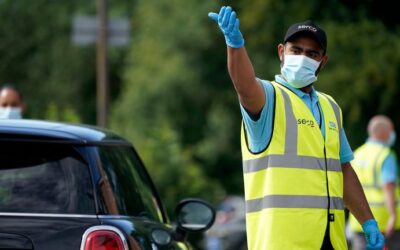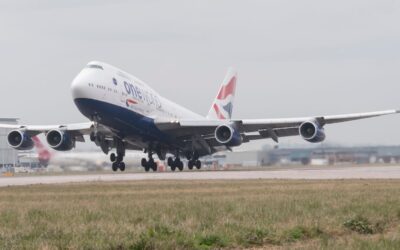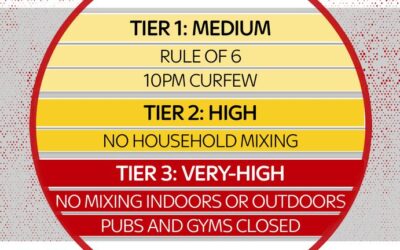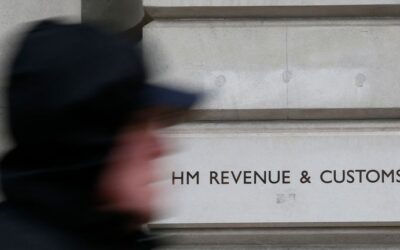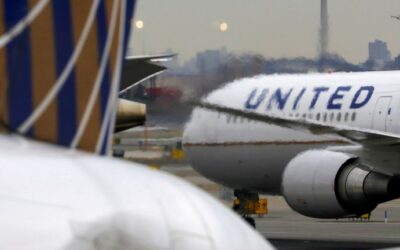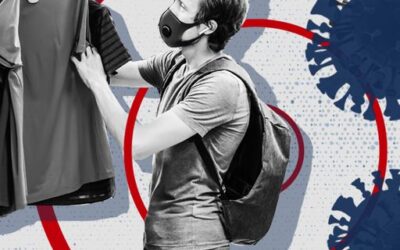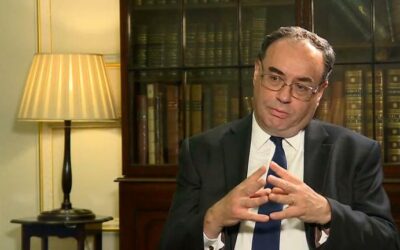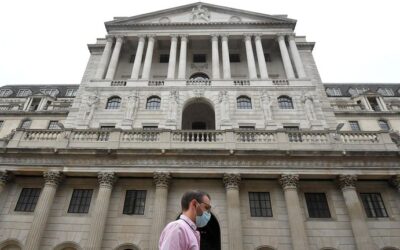Outsourcing giant Serco has raised its revenue and profits forecasts for 2020 as a result of the growth in work with the global pandemic.
Updating the London Stock Exchange in an unscheduled announcement, the company, which is involved in providing the UK government’s test and trace scheme, said it had achieved strong revenue growth in the three months from July.
It highlighted extensions to its contracts to provide test sites and call handlers, which the firm said was “an indication of our customer’s satisfaction with the quality of work we have delivered”.
Serco also said it was looking after an increased number of asylum seekers on behalf of the Home Office, and that its new prisoner escorting contract “has been successfully mobilised”.
Image: The firm has defended its ‘limited and specific’ role in the test and trace programme
The latest figures show the group expects a trading profit, before any one-off costs, of between £160m and £165m, compared with previous estimates of £135m to £150m.
Advertisement
Full-year revenue is expected to be around £3.9bn – up from £3.7bn previously predicted.
The expected growth in profits is likely to fuel the political controversy around the use of private contractors in the troubled testing system.
More from Covid-19
Earlier this week, Sky News revealed the government is paying individual private sector consultants million-pound wages to work on its test and trace programme.
It has also previously emerged that there were more than 1,000 consultants from Deloitte working on the scheme, at day rates of up to £2,360.
The Serco profits announcement comes a day after NHS test and trace recorded its worst ever week for contact tracing as cases of coronavirus continue to rise.
Data showed 62.6% of close contacts of people who tested positive for COVID-19 in England were reached through the system in the week ending 7 October .
Image: The contractor’s involvement in the NHS scheme has been controversial
But responding to the criticism, Serco has defended its “limited and specific” role in the test and trace programme, taking issue with “suggestions that we are responsible for the whole programme and / or that we have failed in our obligations”.
The company said it was “proud to be playing a part” in the NHS scheme and employed around 9,000 people to support it.
It added: “However, the part we play, although important, is limited and specific.”
Coronavirus: How many have tested positive where you live?
The company pointed out it was one of five suppliers running fixed and mobile testing sites and was one of two main contractors on the tracing side.
It said: “We are not involved in other parts of the process, for instance the design and management of the overall programme, the NHS app, the IT systems, the booking of tests, the provision of test kits, the test laboratories, delivering test results, or the identification of contacts of people who have tested positive.
“We believe that our operational delivery has been outstanding, and that we have delivered our obligations to the customer to their satisfaction, evidenced by the fact that they have extended our contracts for both test sites and tracing call capacity.”
Serco added in its statement that it had also benefitted from contracts in the US, Australia and the Middle East.
Shares in the group were up 13% during trading.

